Education

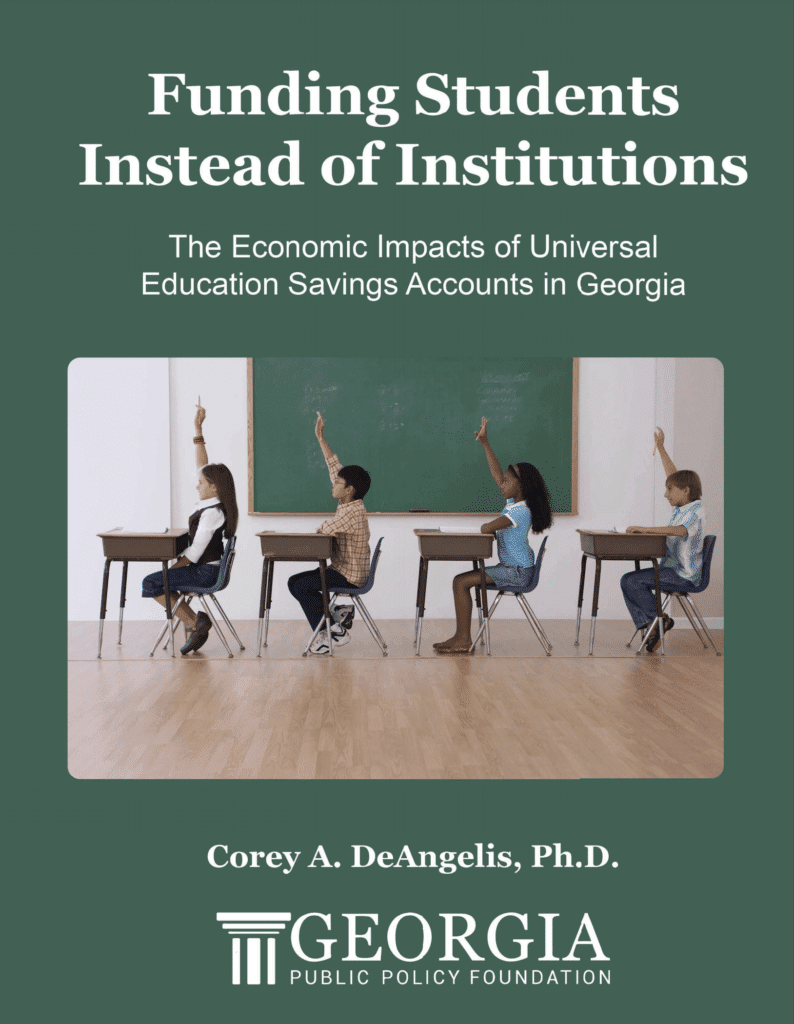
Featured Publication
Funding Students Instead of Institutions
This report reviews the evidence on the topic and estimates the long-term economic impacts of funding Georgia students directly.
Read More
July 25, 2024 • Commentary
Back to school looks different these days
Children across Georgia will soon be returning to school. Recently, however, “back to school” has begun to look a little different for many.
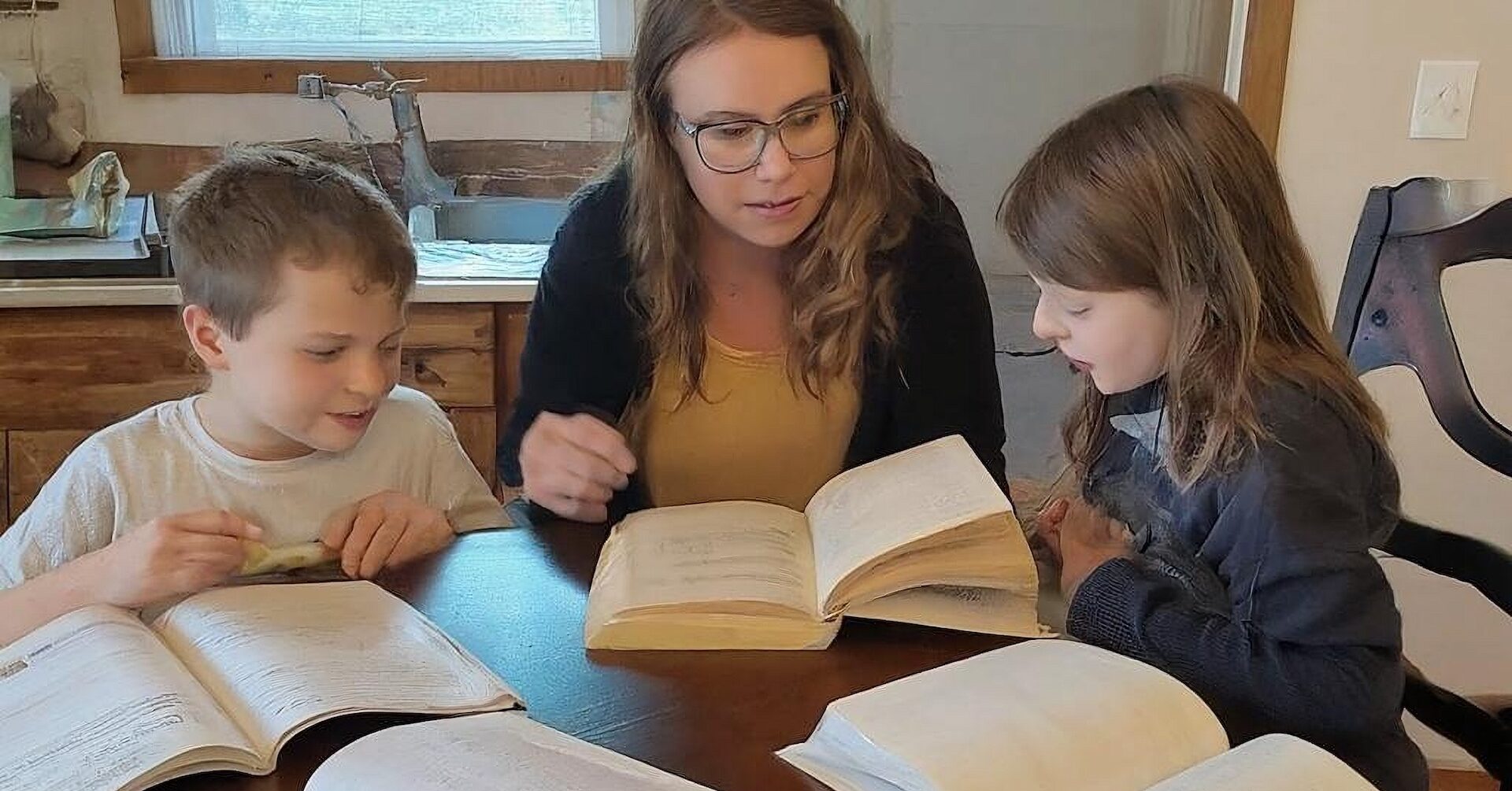
July 8, 2024 • Blog
What is the Georgia Promise Scholarship?
This is your guide for accessing Georgia Promise Scholarships for your children.

June 20, 2024 • Commentary
Reimagining early education
For years, conservatives have dropped the ball on early childhood education policy, almost entirely ceding the playing field to the left.

June 4, 2024 • Blog
How homeschoolers can use the Georgia Promise Scholarship
Homeschool families in Georgia can utilize the Promise Scholarship for their child’s education needs.

May 8, 2024 • Commentary
A day of reckoning for higher education?
As we watch the anti-Israel protests on multiple college campuses – and reactions to those protests – it sure feels like change is in the air.

May 2, 2024 • Blog
Hybrid schools look to the future
Convention organizers said a hybrid school is one that meets a child’s individual needs and/or preferences, and they are only growing.

April 24, 2024 • Blog
Georgians deserve more transparency, consistency and opportunity with open enrollment policies
Students deserve options to find their best educational fit, including within the public school system.

April 23, 2024 • Press Release
Georgia Public Policy Foundation applauds Gov. Kemp for signing Georgia Promise Scholarship Act
Governor Brian Kemp signed the Georgia Promise Scholarship Act into law today, marking a significant milestone in educational reform for the state of Georgia.
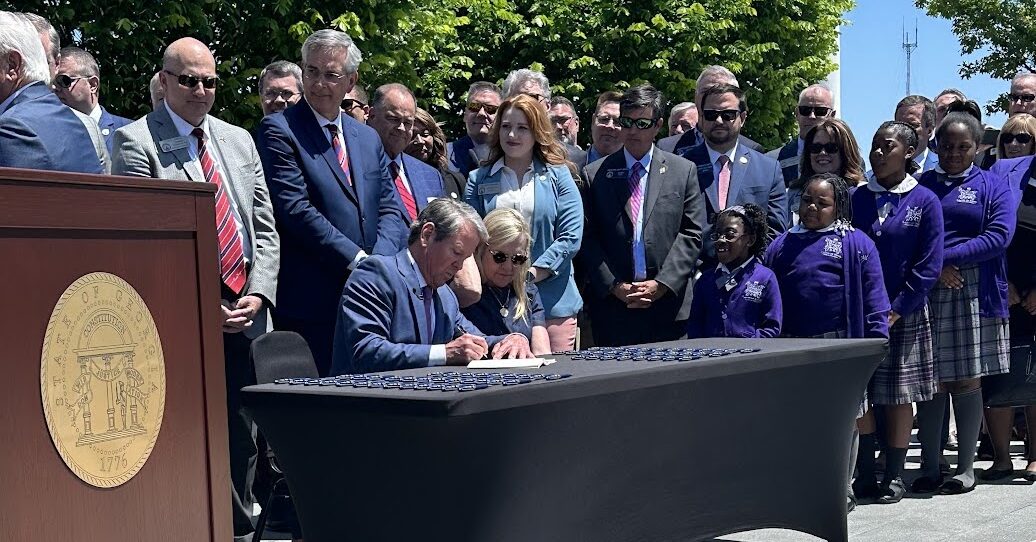
April 18, 2024 • Commentary
The right way to end federal student loans
With the federal student loan program going off the rails (if it was ever really on them), the time is right for a serious conversation about privatization.

April 11, 2024 • Commentary
Making public school open enrollment in Georgia more accessible
Despite the growing popularity of open enrollment programs nationwide, Georgia is not meeting its full potential in making these programs accessible.

March 27, 2024 • Commentary
Georgia students now have a Promise
A brighter future awaits thousands of students who currently lack access to an education that meets their needs.

March 21, 2024 • Blog
General Assembly sends Promise Scholarship Act to Governor
A bill expanding school choice options is headed to Gov. Kemp’s desk for his signature.
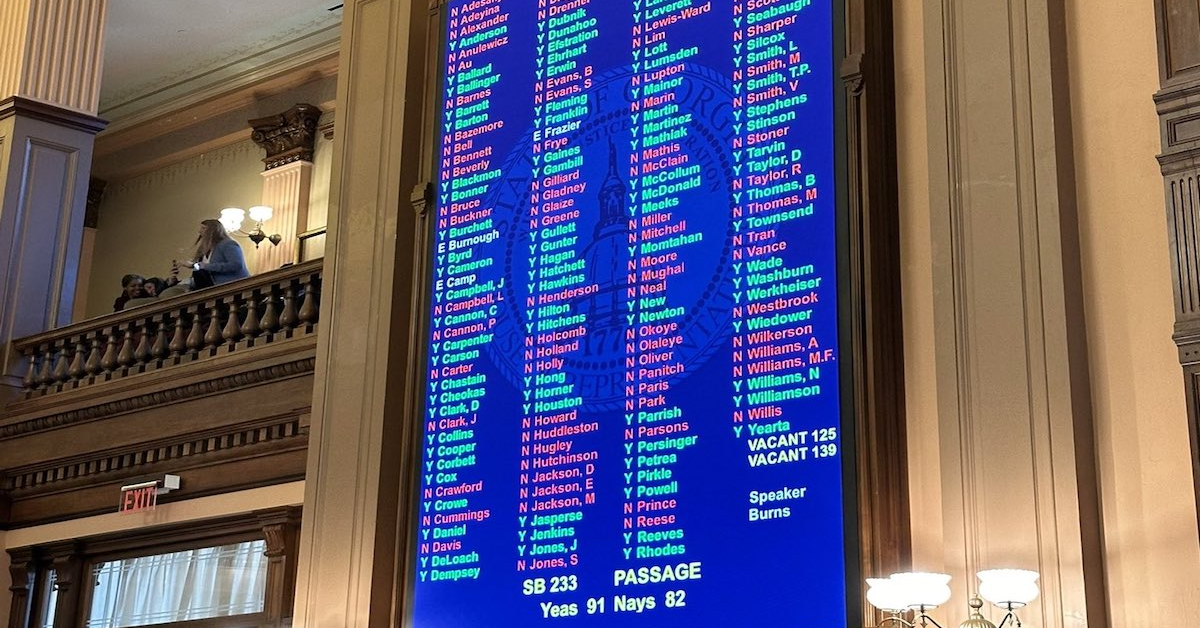
March 20, 2024 • Commentary
Existing service providers are always the loudest voices against change
It’s striking how much our debates over two of Georgia’s most important structural challenges are really the same argument with different jargon.

March 14, 2024 • Press Release
Foundation releases statement on passage of Georgia Promise Scholarship Act
The Georgia House of Representatives adopted the Georgia Promise Scholarship Account, which will create education savings accounts for Georgia families.

March 7, 2024 • Commentary
2024 legislative session enters final stretch
With Crossover Day now in the rearview and candidate qualifying ending this week, what will the final weeks of this session hold?
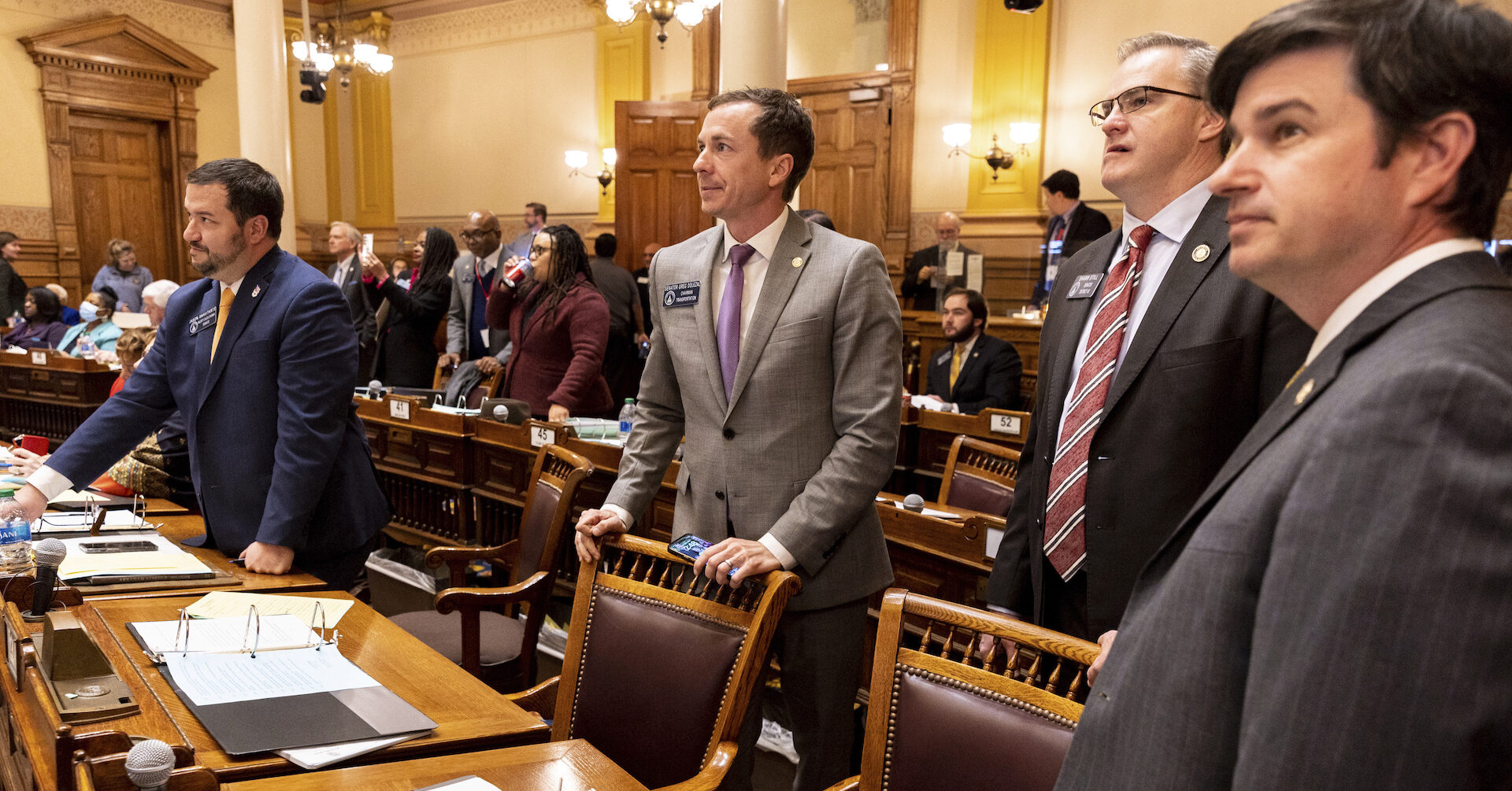
Friday Facts
For more than two decades, the Georgia Public Policy Foundation had published Friday Facts every Friday.
We provide the latest news from Georgia, commentary on the top issues of the day and the latest updates from the Foundation.
Stay informed by signing up below.